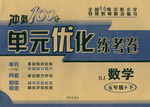
| | Advantages | Disadvantages |
| Wind power | Clean energy. There is a lot of it. | 小题1:__________________________ |
| Waterpower | 小题2:_________________ | It is expensive. |
| Geothermal Power | 小题3:___________________ | It is only possible in a few places in the world. |
| Solar power | Clean and plentiful. | 小题4:___________________________ |


 冲刺100分单元优化练考卷系列答案
冲刺100分单元优化练考卷系列答案科目:初中英语 来源:不详 题型:完形填空
查看答案和解析>>
科目:初中英语 来源:不详 题型:完形填空
| 小题1: |
|
| 小题2: |
|
| 小题3: |
|
| 小题4: |
|
| 小题5: |
|
| 小题6: |
|
| 小题7: |
|
| 小题8: |
|
| 小题9: |
|
| 小题10: |
|
| 小题11: |
|
| 小题12: |
|
| 小题13: |
|
| 小题14: |
|
| 小题15: |
|
查看答案和解析>>
科目:初中英语 来源:不详 题型:完形填空
查看答案和解析>>
科目:初中英语 来源:不详 题型:阅读理解
小题1: When we take photos, we _________.| A.fail to focus on the event itself |
| B.can’t record the details |
| C.remember what we have seen |
| D.are likely to have a poor memory |
小题2:Which of the following is NOT true about the experiment?| A.People who didn’t take photos did better in the experiment. |
| B.They asked a group to try to remember what they had seen. |
| C.The experiment aimed to learn what people were interested in at the museum. |
| D.People who took photos in the museum could remember less details. |
小题3:According to the passage, we’d better _________.| A.never use our cameras |
| B.remember an event by heart |
| C.always remember an event with the help of a camera |
| D.see everything only with our own eyes |
小题4:What do the results of the experiment show us?| A.The mind’s eye and the camera’s eye are not the same. |
| B.People remember happiest moments by taking photos. |
| C.Looking back at old photos helps us remember an event. |
| D.People don’t like taking photos. |
小题5:Where can we probably read this passage?| A.The entrance of a museum. |
| B.A guidebook on how to take good pictures. |
| C.An instruction of how to use a camera. |
| D.A scientific report. |
查看答案和解析>>
科目:初中英语 来源:不详 题型:完形填空
| 小题1: |
|
| 小题2: |
|
| 小题3: |
|
| 小题4: |
|
| 小题5: |
|
| 小题6: |
|
| 小题7: |
|
| 小题8: |
|
| 小题9: |
|
| 小题10: |
|
查看答案和解析>>
科目:初中英语 来源:不详 题型:完形填空
查看答案和解析>>
科目:初中英语 来源:不详 题型:阅读理解
小题1:The passage is mainly about .| A.sparrows’ migration. |
| B.sleep lessons from Sparrows. |
| C.how to get less sleep while studying |
| D.how sparrows that got less sleep get food treats |
小题2:Why can sparrows get much less sleep during the migration season?| A.They eat more. |
| B.The climate is better |
| C.They can get food quickly |
| D.Scientists still don’t know the reason. |
小题3:What fact does the passage lead you to believe?| A.We should sleep as little as sparrows do. |
| B.We should get enough sleep before an exam. |
| C.When tired, we should try to focus on(聚焦) our study. |
| D.When tired, we should check how we can sleep less than usual. |
查看答案和解析>>
科目:初中英语 来源:不详 题型:阅读理解
| A.there were fewer modern machines at that time than today |
| B.people didn’t like to use modern medicines |
| C.there were no modern machines at all |
| D.there was no pollution at all |
| A.Dirty water. | B.Pollution. |
| C.Noise. | D.Too crowded |
| A.noise pollution | B.air pollution |
| C.water pollution | D.waste paper |
| A.before they use it | B.when they use it |
| C.before it is thrown away | D.whenever they use it |
| A.a few years ago, there was no smog at all |
| B.today people don’t have to talk to each other in a loud voice |
| C.people are making rules in order to fight pollution |
| D.people can only use rules to fight pollution |
查看答案和解析>>
湖北省互联网违法和不良信息举报平台 | 网上有害信息举报专区 | 电信诈骗举报专区 | 涉历史虚无主义有害信息举报专区 | 涉企侵权举报专区
违法和不良信息举报电话:027-86699610 举报邮箱:58377363@163.com